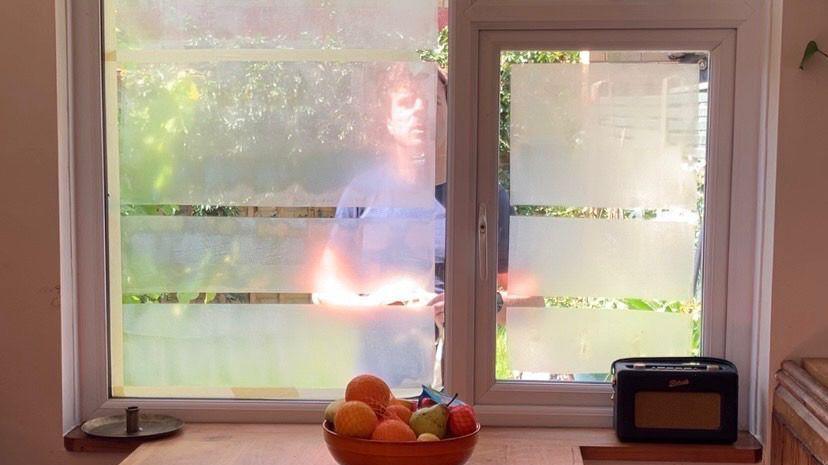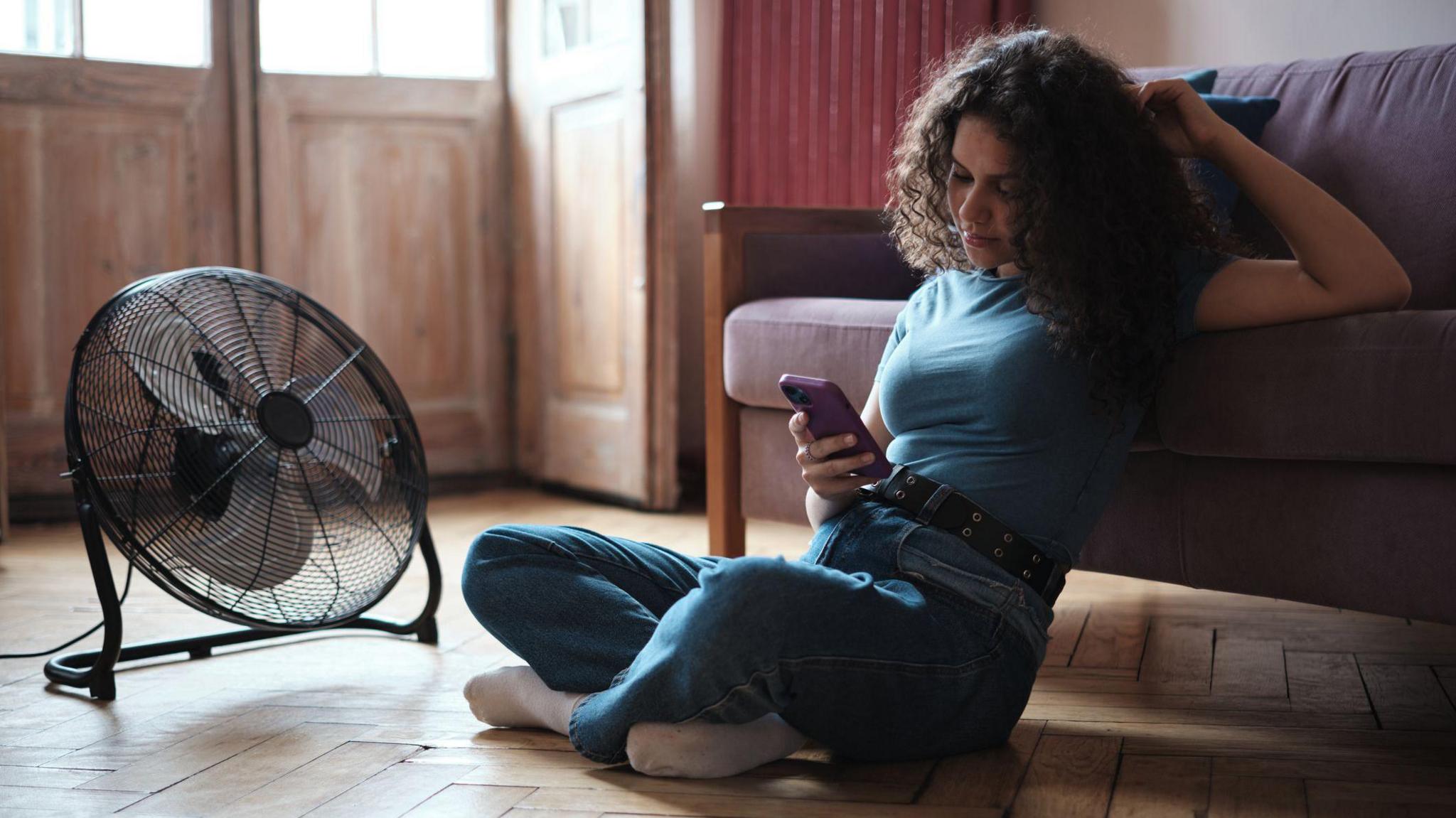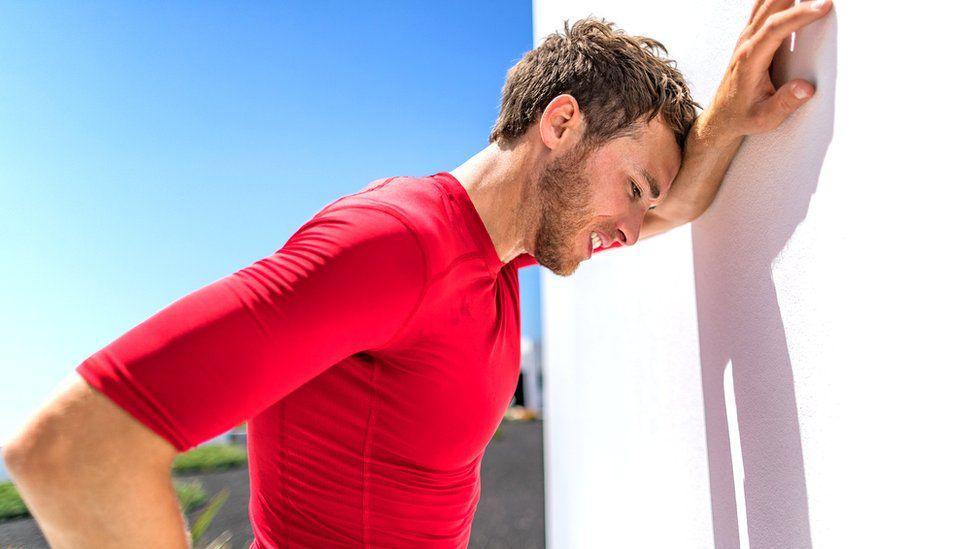Experiment finds yoghurt can lower house temperature

Dr Ben Roberts said the idea for the experiment came after a conversation with Tom Greenhill
- Published
People across the UK would have had their windows open and fans on to try and keep cool in the midst of the third heatwave of the summer.
But there would likely have been few trying out one university lecturer's alternative method to lower the temperature in a building.
Dr Ben Roberts, a senior lecturer in healthy buildings at Loughborough University, said applying yoghurt to the outside of windows could lower the temperature by up to 3.5C.
He has pointed to the results of a month-long experiment to show the method has brought results.
He said: "We can't get houses to cool down during the day.
"That's a real problem for a lot of people, so we've started to look at shading solutions, stopping sun getting into your house during the day."
In May, Dr Roberts and PhD student Niloo Todeh-Kharman conducted an experiment on two identical test houses at Loughborough University by putting yoghurt on the windows of one, but not the other.
The experiment found the indoor temperature of the house with yoghurt on the windows was on average 0.6C cooler, but up to a maximum of 3.5C cooler when it was "hot and sunny".

Dr Ben Roberts said the smell of the yoghurt disappeared after 30 seconds
According to Dr Roberts, the yoghurt forms a thin film on the window itself and reflects some of the incoming solar radiation as it is a light colour.
This means not as much heat passes through the window.
He told the BBC the yoghurt smells for "30 seconds when drying" but that as soon as it has dried "the smell disappears".
Dr Roberts said the idea came from a conversation with Tom Greenhill, the author of the Heatwave Toolkit website, who was thinking of "low-cost ways" which could stop overheating.
He added Mr Greenhill tried putting yoghurt on his own house but that it had never been tested.
For their experiment, the scientists at Loughborough University used a supermarket-brand of Greek yoghurt that had a fat percentage of about 10%.
When he saw the results of the investigation, Dr Roberts said he was "quite surprised" as he did not think it would be "that effective".
He added when they carried out experiments with tinfoil - which blocks "pretty much" all of the incoming sun's heat - they saw a maximum temperature drop of 5C to 6C, so he was "pleasantly surprised" with the results from the yoghurt experiment.
Dr Roberts said: "It shows the importance of treating windows and heat shielding solutions for windows to reduce overheating.
"We see a lot of excess summer deaths, so very simply if you can keep your home cooler we'll reduce the number of excess summer deaths happening and we can improve people's health and wellbeing."
Dr Zoe De Grussa, research manager at the Chartered Institution of Building Services Engineers, added: "It's not your everyday hack, I would say, but anything you can do to put on the outside of windows is going to be of benefit to stopping sunshine coming in and heating up the internal environment."
Get in touch
Tell us which stories we should cover in Leicester
Follow BBC Leicester on Facebook, external, on X, external, or on Instagram, external. Send your story ideas to eastmidsnews@bbc.co.uk, external or via WhatsApp, external on 0808 100 2210.
Related topics
- Attribution
- Published11 July

- Published12 August

- Published12 August

- Published12 August

- Published12 August

- Published12 August

- Published21 June
